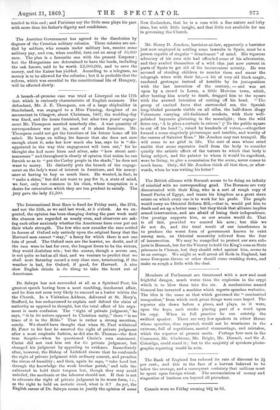A breach-of-promise case was tried at Liverpool on the 17th
-inst. which is curiously characteristic of English manners. The defendant, Mr. J. E. Thompson, son of a large shipbuilder in Sunderland, was engaged to a Miss Fleming, daughter of an accountant in Glasgow, about Christmas, 1867, the wedding-day -was fixed, and the house furnished, but after two years' engage- ment Mr. Thompson married somebody else. A vast quantity of correspondence was put in, most of it about furniture. Mr. 'Thompson could not get the furniture of his future home off his mind. He keeps on telling his fiancee that she does not care enough about it, asks her how much she has, says he is " dis- appointed in the way this engagement will turn out," for he -thought she had more linen and silver, asks " how about anti- macassars" and throughout is clearly of opinion that unless he can furnish so as to " put the Carley people in the shade," he does not want to marry. He distinctly puts the breach of the engage- ment on the lady's want of interest in furniture, and his annoy- ance at having to buy so much linen. He wanted, in fact, to -" make a shine," but did not want to pay for it, a state of mind, we fear, only too common in his class, whose temptation is a desire for ostentation which they are too prudent to satisfy. The jury gave the lady £1,500.






























 Previous page
Previous page